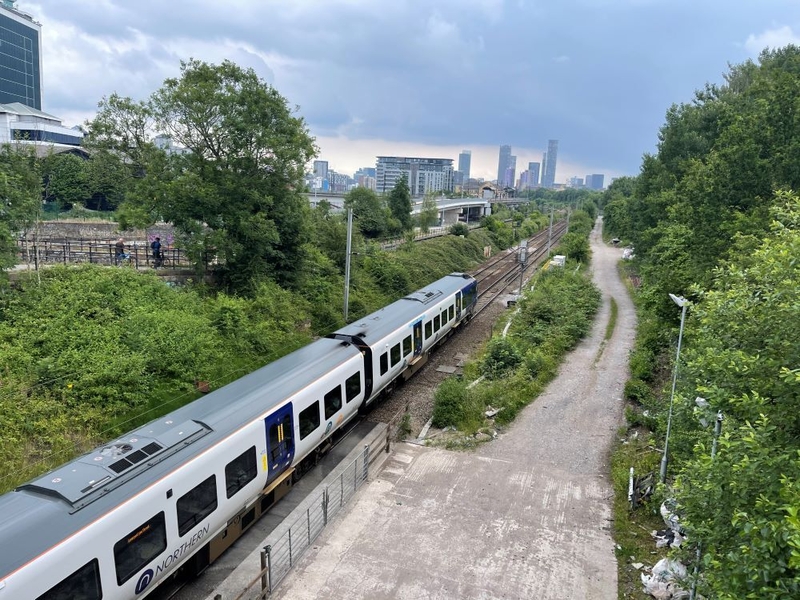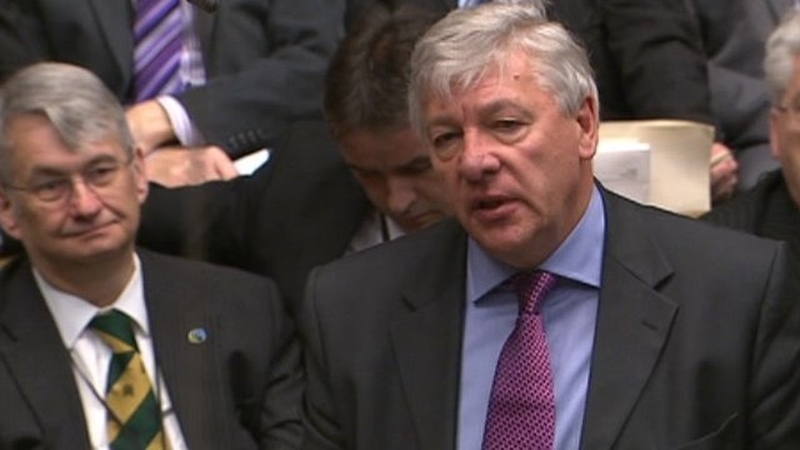Graham Stringer, Blackley and Broughton MP, on an opportunity Labour must not miss
Mark Harper, the Conservative Secretary of State for Transport, has finally bowed to the inevitable and has sacked TransPennine Express (TPE). This follows years of failure by the FirstGroup-owned operator, less than half the services were on time and 20% of the services did not run at all. Appallingly, on some days more than half the services failed to operate. TransPennine services which cover the major cities of the north of England and also routes to Glasgow and Edinburgh will be taken over by a so-called ‘operator of last resort’.
The bodged and cheap sale of the railways killed people
This is the fourth time this Conservative Government has nationalised train operating companies, namely LNER, which runs the East Coast mainline, Northern Trains and Southeastern. Mark Harper in his ungracious statement to the House of Commons blamed the rail unions for the failures of TPE, he committed to bringing back all four train operating companies into private ownership.
This is an ideologically irresponsible position which will, if carried through, cost the taxpayer and punish the rail passenger. The shocking performance of TPE is not an aberration of the privatised system but a fundamental feature of it. Avanti West Coast, also owned by FirstGroup, have been nearly as poor as TPE but have kept their franchise because the Government haven’t got the capacity to deal with two failures at the same time.
The system is fixed so as to allow the private companies owning the franchises to make a profit even when their operation is making eye-watering losses. To continue to have faith in the privatised rail system in the face of ever-increasing costs and ever decreasing services is to put ideology before the evidence. Even a Conservative dunderhead must realise that if a Conservative Government has to nationalise four train operating companies there is something wrong. This system is chronically and routinely failing.

As a newly elected MP after the 1997 General Election one of the first debates I participated in was on a National Audit Office report on the privatisation of British Rail. This report was a devastating analysis, it concluded that John Major’s Government had been in such a hurry to sell off one of our great national assets they had failed to achieve its real value – probably only raising half the cash that was possible. When I pointed this out the response from the Conservative benches, with the benefit of hindsight, was risible. Actually, even at the time it was not credible. I was told that maybe the National Audit Office report was accurate but soon this would not matter because in the very near future the railways would require no subsidy. A quarter of a century later in real terms the subsidy to our rail system has increased threefold and rail fares have increased by 20%.
This is clearly bad enough; but the bodged and cheap sale of the railways killed people. Privatisation had separated the ownership and operation of the tracks and stations from train operating and financing was to be done by three unregulated leasing companies. The track and station were taken over by a new company appropriately named Railtrack, unfortunately it was more interested in property development than the maintenance of the tracks and having effective signalling and train protection systems.
In October 1999 two trains collided just outside Paddington station killing 31 people and injuring 417. Gerald Corbett, the Chief Executive of Railtrack, had a few months previously claimed that Paddington was one of the safest railway stations in the world. On the 17 October 2000 at Hatfield in Hertfordshire a train was derailed killing four people. Railtrack had outsourced the maintenance. Railtrack were found guilty of breaching health and safety laws and replaced, at huge public expense, by the publicly owned Network Rail.
An almost forgotten scandal of the time was the huge amount of profit made by the unregulated leasing companies.
The implication of Mark Harper’s statement was that the Government’s commitment to the so-called ‘Great British Railways (GBR)’, a body which would oversee rail transport, has been scrapped and the Conservatives have backed into their privatisation cul-de-sac. This is a mistake, but it is an opportunity for Labour to be bold and radical in its approach to its manifesto for the forthcoming General Election. It is as plain as a pikestaff that not only has privatisation been a costly and deadly failure; but it cannot work. The Government will always have to take over if private train companies fail. Privatisation without risk is a recipe for a large public sector bill with no democratic input.
Unlike water, which has also been a massive failure of privatisation, there would be little cost to bringing the whole of the railway system back into public ownership. Network Rail and the four train operating companies are already in public ownership and the other franchises could just return to the Government at the end of their contractual period.
The railways were privatised because John Major wanted to enhance his reputation with a Thatcherite project. Having been starved of investment this inevitably led to the loss of some public support.
The Beeching cuts of the 1960s to branch lines had meant less people were travelling by train. A whole new generation of people had invested in cars to travel on a new relatively uncongested motorway system.
That is not the situation now.
The electorate support investment in railways to improve the economy of the north, to help the environment and keep people off the – now congested – motorways. The public want, if not are demanding, a publicly owned railway system with increased investment. This is an opportunity Labour should not miss.

Graham Stringer is an occasional columnist for Manchester Confidential. He is the Labour Member of Parliament for Blackley and Broughton with a majority of 14,402 after the 2019 General Election. He was elected to Parliament in 1997. Until 1999 he was on the Environment, Transport and Regional Affairs select committee, then was a Labour Government whip and subsequently a member of the Transport Select Committee in the last years of Labour Government. Prior to parliament he was the Leader of Manchester City Council from 1984-1996. He is credited for being a principal agent in the return of city confidence and Manchester's regeneration.
If you liked this article read...
Prince Michael's madness, Simon Wood's beef fat candle and Lord Daresbury shock
How the Guardian got it so wrong with the Manchester ship
Pride of Manchester awards, Martyn's Law mum, Figen Murray speaks out
Get the latest news to your inbox
Get the latest food & drink news and exclusive offers by email by signing up to our mailing list. This is one of the ways that Confidentials remains free to our readers and by signing up you help support our high quality, impartial and knowledgable writers. Thank you!
















